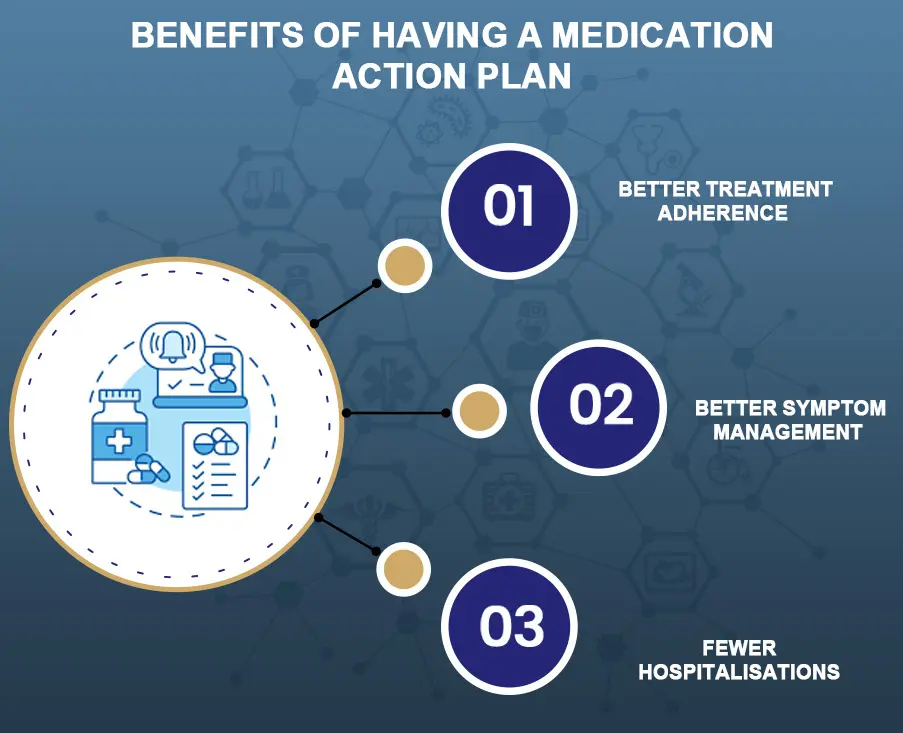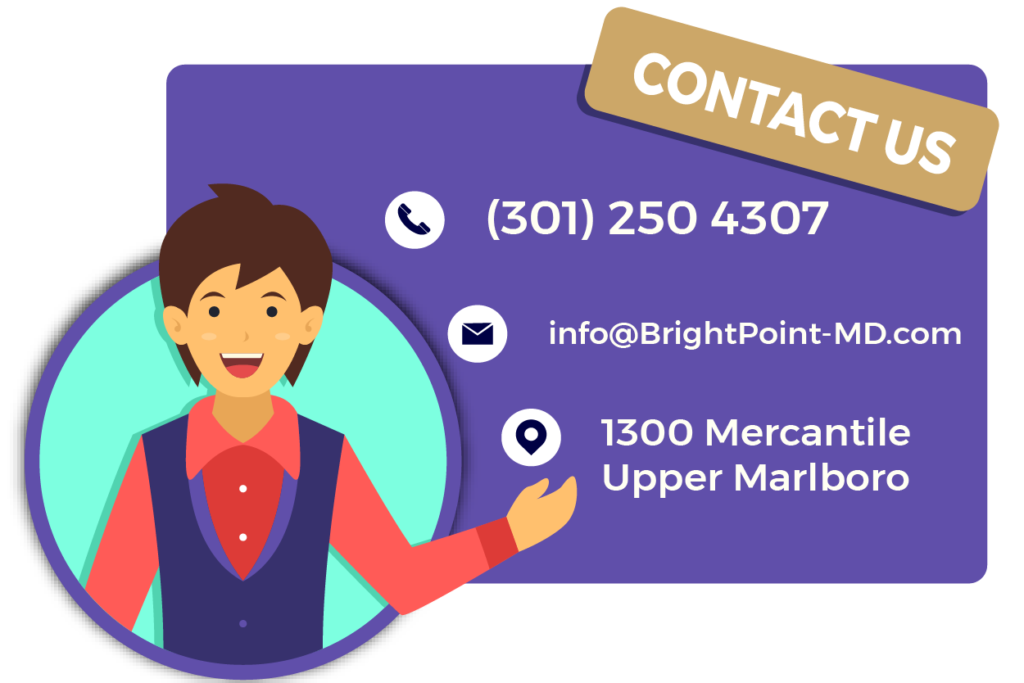A Medication action plan is a customized, systematic approach to medication management that promotes adherence and wellness. It lists all of your prescriptions, their doses, and when and how to take them.
Managing drugs appropriately is essential for good health. Medication management can enhance symptom control, treatment results, and complications. It empowers people to improve their health and quality of life. This blog discusses Medication action plans and health management. We will discuss medication therapy management (MTM) and offer recommendations to help you design and implement a plan.
Understanding Medication Management
Medication Management ensures safe, effective, and appropriate pharmaceutical usage. It involves prescribing, distributing, administering, and monitoring drugs.
Healthcare providers are essential for medication management. They evaluate patients, administer drugs, and track treatment outcomes. Communication between patients and doctors is crucial for drug management.
Challenges and Risks of Poor Medication Management
What is a Medication Action Plan?
A medication action plan explains how to follow and manage medications. It promotes proactive health management by tailoring to an individual’s medical needs, lifestyle, and preferences.
Unlike simple drug administration, a drug action plan is more detailed. Setting objectives, resolving obstacles, and actively participating the healthcare team optimizes treatment outcomes.
Creating a Medication Action Plan
- Assess your prescription, over-the-counter, and supplement needs. Know their uses, doses, and side effects.
- Set attainable drug management objectives like increased adherence, side effect reduction, or symptom control.
- Identify medication management issues and devise solutions. This may involve pill organizers, medication regimens, or family assistance.
- Create a detailed plan with your physicians, chemists and nurses. Make sure everyone knows your strategy and can help.

Benefits of Having a Medication Action Plan
A medication action plan has several benefits, improving health management and overall health. Patients can benefit from proactive drug management:
1. Better Treatment Adherence
A well-structured Medical action plan reminds patients to take their pills. Patients are more likely to take their medications if they follow the plan, improving treatment results. Adherence improves drug efficacy, avoiding illness progression and consequences.
2. Better Symptom Management
Patients can better control and relieve their symptoms with a thorough medication plan. Compliance with recommended drugs reduces symptom intensity and frequency, improving quality of life and comfort.
3. Fewer Hospitalisations
Patients can decrease medication-related problems and medical exacerbations by following their medication plan. This can reduce hospitalisations and ER visits, lowering healthcare expenditures and improving health.
4. Better Emotional Health
A Medication action plan helps people to control their health. Effective medication management gives patients a sense of control over their health, improving their well-being and everyday life.
5. Optimized Drug Regimen
Patients and physicians can optimize treatment regimens with an action plan. Improvements in medication coordination and integration reduce drug interactions and negative effects. This optimization ensures the patient’s medications are effective and suitable.
6. Greater Patient-Healthcare Provider Collaboration
A med action plan encourages patient-provider dialogue and collaboration. More personalized and patient-centered treatment results from encouraging patients to disclose drug management issues.
7. Confidence and Empowerment
Patients feel empowered and confident when they actively participate in their treatment with proper plan. This sense of health ownership can promote self-esteem and motivate healthy living and treatment.
8. Medication Error Prevention
Patients can reduce medication mistakes by clearly outlining directions and doses in the plan. Clear instructions help patients take their drugs safely and efficiently, preventing overdoses and missing doses.

Medication Therapy Management (MTM)
Benefits of Incorporating MTM in Your Health Management
Incorporating MTM in your health management can lead to better medication outcomes, increased knowledge about your medications, and improved communication with your healthcare team.
Medication Management Tips for Success
- Arrange your meds safely and easily. Use pill organizers or apps to track doses and refills.
- Use phone alarms or medication reminder applications to remember to take your meds.
- Carefully read drug labels and directions. Please ask your chemist or doctor if you have questions.
- Inform your doctor about adverse symptoms immediately. They can alter your therapy if needed.
- Know how drugs and supplements interact. Talk to your chemist or doctor to avoid side effects.
- Avoid accidental consumption and environmental contamination by properly disposing of expired or unused pharmaceuticals. Consult your chemist or local regulations for safe disposal.
Implementing Your Medication Action Plan
Start implementing your medication plan by following the steps you outlined during the creation process.
Monitoring and Reviewing Your Progress
Regularly monitor your progress and make adjustments as needed. Keep track of medication changes, improvements in symptoms, and any challenges faced.
Modifying the Plan as Needed
If your health condition changes or you encounter new challenges, modify your medication plan accordingly. Regularly communicate with your healthcare team to ensure your plan stays up-to-date.
Communicating with Your Healthcare Team
Maintain open communication with your healthcare team, sharing updates and seeking advice whenever necessary. A collaborative approach enhances the effectiveness of your action plan.
Conclusion
Finally, Action plans for medication promote adherence, medication management, and health. By implementing these strategies, people may manage their health and improve medication management and treatment results.
Patients and doctors work together to better understand drug requirements, optimizing regimens and reducing side effects. Medication action plans help people live healthy, happy lives. Drug management and following prescriptions can lead to a better and happier future.
Must Read: Strengthening Bonds: Exploring Family Therapy Goals and Objectives
FAQS
A drug action plan is a customized plan to optimize drug management. It lists your drugs, doses, and adherence directions. A well-structured strategy helps you to manage your health, improving treatment adherence, symptom management, and complications.
Regular medication management entails taking prescribed drugs. However, a Medication Action Plan addresses individual health requirements and possible difficulties in a comprehensive manner. It involves goal-setting, healthcare provider collaboration, and proactive health and well-being methods
A drug Action Plan improves treatment adherence, symptom control, hospitalisations, drug regimens, healthcare provider collaboration, and empowerment and confidence in health management.
Pharmacists optimize medicine usage through medicine Therapy Management (MTM). Medication reviews, problem-solving, and patient education make MTM an ideal fit with Medication Action Plans.
Assessing your medication requirements, creating objectives, detecting possible issues, and including your healthcare team are key to a successful Medication Action Plan. The plan should be evaluated and adjusted as needed based on your health or treatment needs.

